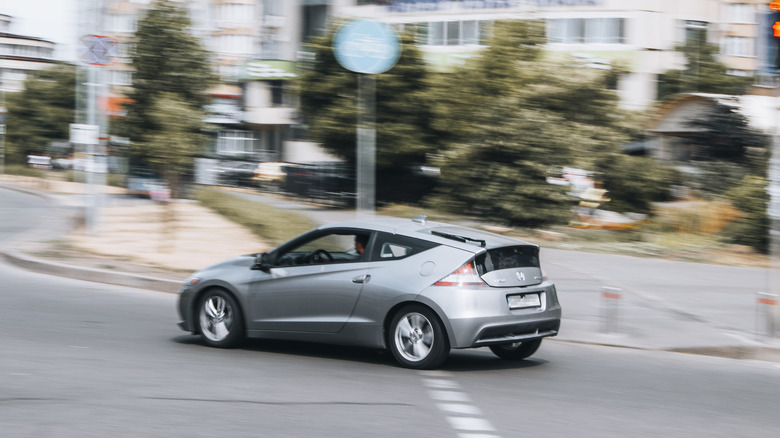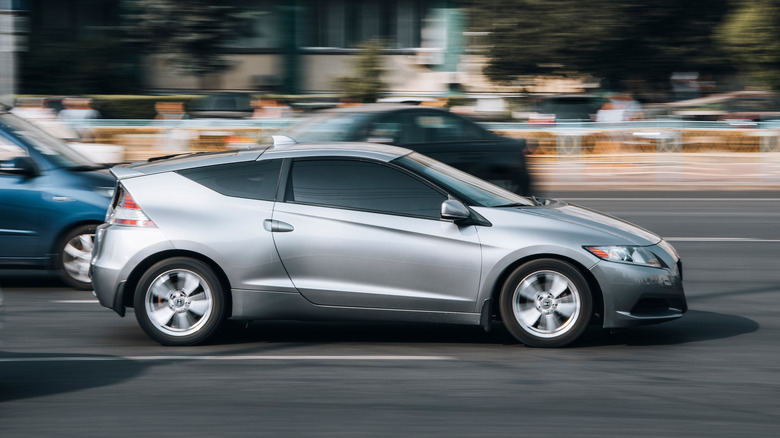Whatever Happened To The Honda CR-Z?
Since its founding in 1948, Honda Motor Co. has become one of the most trusted names in the automobile industry, with the company delivering a steady lineup of cars as notably reliable and fuel-efficient as they are price-conscious and fun to drive. Over the past several decades, Honda has, of course, also become one of the industry leaders in developing cars that do not rely solely on fossil fuels to function.
The company's dedication to producing automobiles that operate using alternate fuel sources led to the release of some of the best-loved, and best-selling electric and hybrid vehicles in recent years. However, not all of Honda's eco-friendly options have been well-received by the alternate energy-loving public, and the company's CR-Z is arguably one of its most prominent green-initiative failures.
The CR-Z was highly touted ahead of its 2010 debut, with Honda essentially tabbing the two-door hatchback as the hybrid version of its once-beloved CRX model. Unfortunately, the CR-Z never managed to reach the same level of adoration that Honda lovers bestowed upon its predecessor, and just a few short years after the vehicle made its way to the sales floor, it was removed from the automaker's lineup of hybrid automobiles altogether. Though the CR-Z has hardly been missed, questions still abound as to why Honda didn't keep the pint-sized hybrid around a little longer. Here's what happened to the Honda CR-Z.
Poor sales and a changing market doomed Honda's CR-Z
The failure of the CR-Z was all the more surprising as it hit the market with a wallet-friendly asking price of around $19,000 and didn't face much competition in its class from rival automakers. Upon release, the hybrid looked like it would be an instant hit with younger, cash-strapped buyers hot to purchase their first new car. But it seems even those drivers were underwhelmed by the CR-Z's get-up-and-go on the road, with the vehicle's hybrid powertrain offering a meager 130 horsepower.
Honda reportedly sought to remedy that issue in later models by offering a supercharger kit for the CR-Z that bumped the horsepower up to 197, but said kit was only available to drivers who purchased the six-speed manual model. Even then, the supercharger option appeared to do little to help the CR-Z's sales numbers, which were in steady decline from one year to the next after release. Not helping matters was that, during its production years, gasoline prices were far more palatable for drivers which, in turn, helped made hybrid vehicles less desirable than they had been in the early to mid-2000s.
Perhaps even more problematic was that the CR-Z's fuel efficiency was lagging behind many other hybrids on the market. Dogged by flagging sales and a dodgy reputation, Honda bosses had little choice but to pull the plug on the CR-Z, which the automaker finally did in the Summer of 2016. To date, Honda hasn't sought to replace the sporty CR-Z in their stable of hybrids, and given the vehicle's lackluster legacy, one has to wonder if it ever will.

